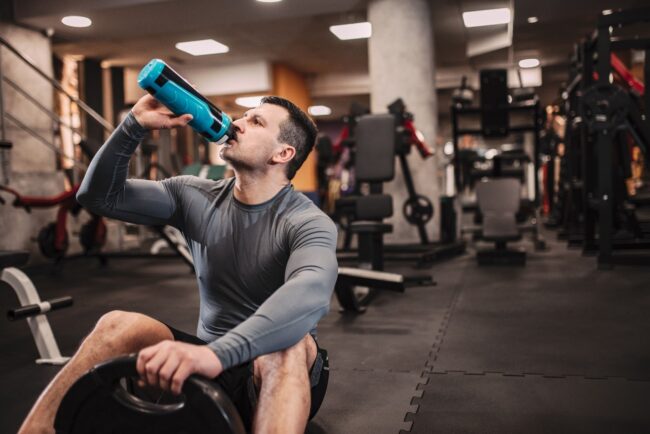The Importance of Hydration in Athletic Recovery
Staying hydrated is crucial for anyone when engaging in physical activity, and especially for athletes. Kevin Morgan of New York emphasizes how proper hydration is not only essential for overall health but also plays a significant role in optimizing performance and enhancing recovery. This article delves into the critical role of hydration in recovery and offers practical tips for maintaining optimal hydration levels before, during, and after workouts.
Why Hydration Matters in Recovery
Hydration is fundamental to every bodily function, including muscle repair, joint lubrication, and temperature regulation. When you exercise, your body loses water through sweat, and if these fluids are not replenished, dehydration can set in, leading to a decline in performance and a longer recovery time. Developing an understanding of the science behind hydration will help with grasping its importance.
Key Benefits of Staying Hydrated:
- Muscle Function and Repair: Water is essential for transporting nutrients to muscles and removing waste products. Proper hydration ensures that muscles receive the nutrients they need to repair and grow after exercise.
- Joint Health: Hydration keeps the joints lubricated, reducing the risk of injury and improving overall mobility and flexibility.
- Temperature Regulation: During exercise, the body generates heat. Sweating helps cool the body down, but this process also leads to fluid loss. Maintaining hydration is crucial for effective temperature regulation.
- Cardiovascular Health: Dehydration can reduce blood volume, making the heart work harder to pump blood and deliver oxygen to muscles. Proper hydration supports cardiovascular efficiency, reducing strain on the heart.
Signs of Dehydration
Recognizing the signs of dehydration is the first step to preventing it. Common symptoms include:
- Dry mouth and throat
- Dark yellow urine
- Fatigue and dizziness
- Muscle cramps
- Decreased performance and increased recovery time
Hydration Strategies for Optimal Performance
- Pre-Workout Hydration: Start hydrating well before your workout. Aim to drink 16-20 ounces of water around two hours before exercising. This gives your body time to absorb the fluids and ensures you start your workout well-hydrated.
- Hydration During Exercise: During exercise, aim to drink 7-10 ounces of water every 10-20 minutes. If you’re engaging in intense or prolonged exercise, consider a sports drink that contains electrolytes to replace lost sodium and potassium.
- Post-Workout Hydration: Rehydrating after exercise is just as crucial for proper recovery. Aim to drink at least 16-24 ounces of water for every pound of body weight lost during exercise. Weighing yourself before and after a workout can help determine your fluid needs.
Electrolytes and Hydration
Electrolytes such as sodium, potassium, magnesium, and calcium are minerals that help maintain fluid balance, muscle function, and nerve signaling. When you sweat, you lose electrolytes, which need to be replenished along with water. Here’s how to ensure you get enough electrolytes:
- Balanced Diet: Eating a balanced diet that includes fruits, vegetables, and dairy products can help maintain electrolyte levels. Foods like bananas, oranges, spinach, and yogurt are excellent sources of these essential minerals.
- Electrolyte Supplements: For intense workouts or hot climates, consider electrolyte supplements or sports drinks that can help replenish lost minerals.
Hydration Tips for Different Conditions
- Hot Weather: Exercising in hot weather increases sweat production, leading to higher fluid loss. Drink more water than usual and consider adding an electrolyte supplement to your routine as well.
- Cold Weather: Cold weather can reduce your sense of thirst, leading to dehydration. Make a conscious effort to drink water regularly, even if you don’t feel thirsty.
- High Altitude: Higher altitudes can increase fluid loss and the risk of dehydration. Be sure to increase your water intake and include electrolyte-rich foods or drinks.
Innovative Hydration Solutions
- Hydration Apps: Various apps can help track your water intake and remind you to drink regularly. These tools can be particularly useful for maintaining consistent hydration.
- Smart Water Bottles: Smart water bottles equipped with sensors can track how much you drink and provide regular reminders to stay hydrated.
- Infused Water: If you find plain water boring, try infusing it with fruits, herbs, or vegetables to add flavor without any extra calories.
Embrace Hydration for Enhanced Recovery and Performance
Kevin Morgan of New York underscores that staying hydrated is a simple yet powerful way to enhance athletic performance and recovery. By understanding the importance of hydration, recognizing the signs of dehydration, and implementing effective hydration strategies, athletes can maintain optimal performance and facilitate faster recovery.
Always prioritize hydration as part of your fitness routine, and remember that consistent fluid intake before, during, and after workouts is key to staying healthy and performing at your best. With the right approach to hydration, you can support your body’s needs and achieve your fitness goals with greater ease and efficiency.
